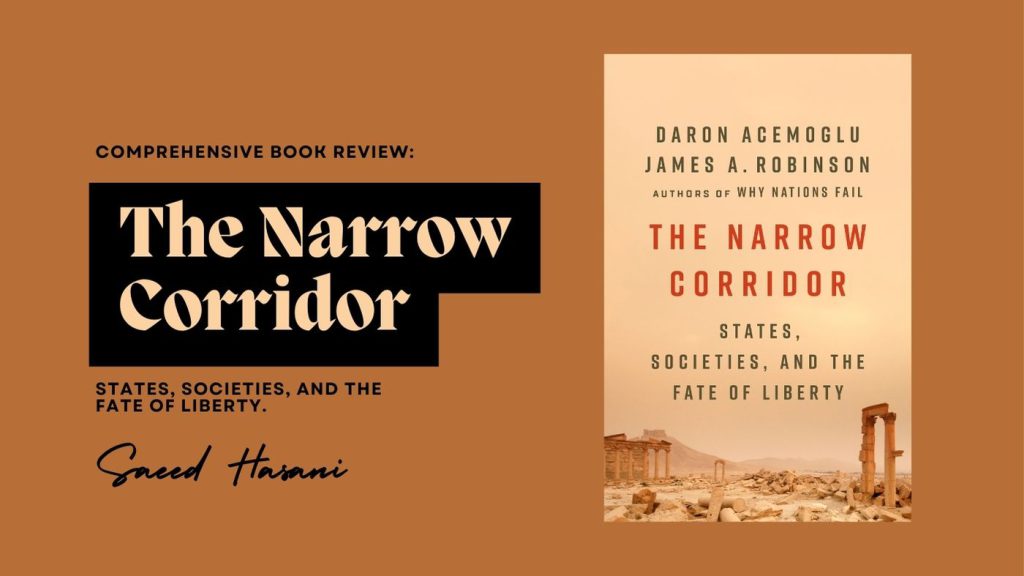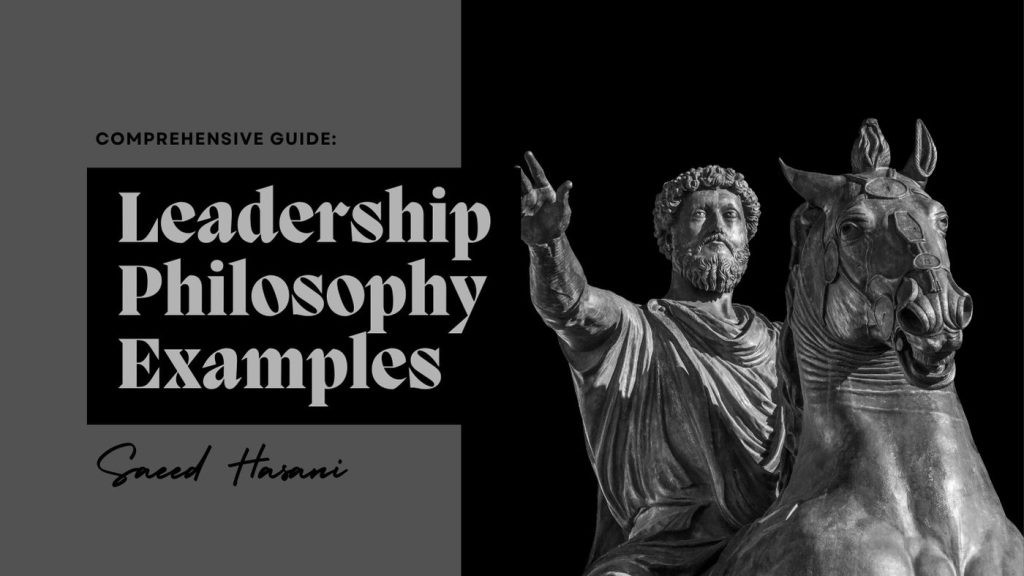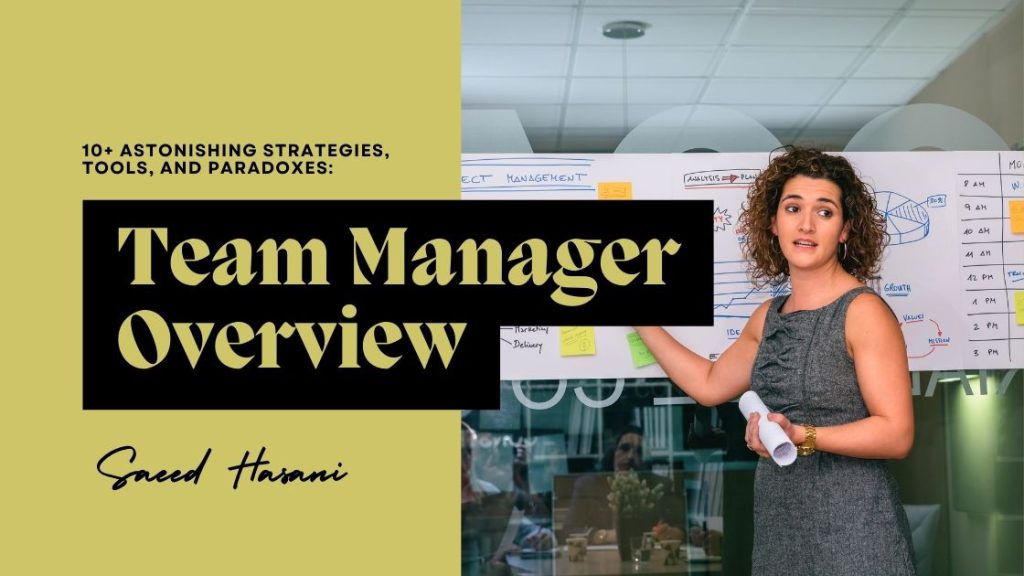The Narrow Corridor: States, Societies, and the Fate of Liberty | Comprehensive Book Review

Are you intrigued by the delicate dance between state power and individual freedom? “The Narrow Corridor: States, Societies, and the Fate of Liberty” by Daron Acemoglu and James A. Robinson unravels the complex interplay that shapes the fate of liberty in societies around the world.
Dive into our comprehensive book review to explore how the balance of power can lead to either the flourishing of freedom or its demise and discover the pivotal role that society plays in navigating this narrow corridor toward true liberty.
“The Narrow Corridor” Content Overview:
People must be able to make free choices about their lives and have the means to carry them out without the menace of unreasonable punishment or draconian social sanctions.
The book champions the principle of individual autonomy, asserting that people must possess the freedom to make choices about their own lives. This aligns with Acemoglu’s research on how economic policies and institutions can either empower or restrict individual agencies.
The call for free choice reflects a fundamental belief in the dignity and worth of each individual, a theme that resonates throughout Acemoglu’s work on democracy and inclusive institutions.
The emphasis on having “the means to carry them out” speaks directly to Acemoglu’s concerns with economic structures and their impact on individual capabilities.
In his seminal work with Robinson, “Why Nations Fail,” Acemoglu argues that inclusive economic institutions are crucial for enabling individuals to exploit their talents, skills, and ambitions.
This sentence encapsulates the idea that true freedom includes not just the right to choose but also access to the resources necessary to realize those choices—be they education, financial capital, or legal protections.
The warning against “the menace of unreasonable punishment or draconian social sanctions” echoes Acemoglu’s analysis of the destructive power of extractive institutions that concentrate wealth and power in the hands of a few, often leading to oppression and inequality.
By highlighting the danger of excessive punishments and harsh social sanctions, the sentence implicitly advocates for the rule of law, fairness, and the protection of individual rights against arbitrary authority.
It underlines the importance of institutions that not only allow for but also protect, the free exercise of personal choice.
Checks and balances parachuted from above don’t work in general!
Acemoglu and Robinson’s statement is a succinct critique of the imposition of political structures without the organic, grassroots involvement of the society they are meant to serve.
The metaphor of “parachuting” vividly conveys the idea of external or top-down interventions that lack grounding in the local social and political context.
This argument is central to their exploration of how societies can navigate “The Narrow Corridor” to achieve and maintain liberty—a corridor flanked by the “Despotic Leviathan” on one side and the “Absent Leviathan” on the other.
The authors argue that for checks and balances—a system designed to ensure no single entity within a government can wield unchecked power—to function effectively, they must be supported by a society’s active and engaged participation.
This premise challenges the notion that democratic institutions can be successfully exported or implemented in a top-down manner, without adapting to the unique historical, cultural, and economic conditions of each society.
The relevance of this statement extends beyond theoretical discussions of political science to practical considerations in international development, governance reform, and democratization efforts.
It serves as a cautionary note against the simplistic transplantation of institutional models from one context to another, highlighting the need for a deeper understanding of the underlying social contracts and power dynamics that enable these systems to function.
While Acemoglu and Robinson’s critique of externally imposed checks and balances is compelling, it also opens up avenues for further reflection. For instance, what are the mechanisms through which local societies can organically develop or adapt checks and balances?
Additionally, how do we reconcile the need for external support in contexts where the local capacity for such development is constrained by oppressive regimes or entrenched conflict?
Society needs to control the state so that it protects and promotes people’s liberty rather than quashing it.
At the heart of this assertion is the concept that the state, while a powerful entity capable of either fostering or hindering liberty, must be under societal control. This perspective underscores a foundational belief in the primacy of individual freedom as a cornerstone of a just and prosperous society.
Acemoglu and Robinson argue that without the vigilant oversight of its citizens, the state can easily become a despotic force that suppresses freedom rather than a protective entity that nurtures it.
The authors position society as the key actor in ensuring that the state serves its intended purpose as a protector of liberty. This viewpoint emphasizes the active role that citizens must play in governance, not merely as subjects of state power but as its regulators.
It acknowledges the inherent risks of state overreach and the necessity of continuous engagement and vigilance on the part of the populace to prevent the erosion of freedoms.
This statement reflects the book’s broader thesis about “The Narrow Corridor” to liberty, where the state and society must balance each other out.
The “corridor” represents the path to maintaining a state that is strong enough to enforce laws and protect rights but constrained by a politically active society that ensures the state’s power is not abused.
This equilibrium is delicate and requires constant maintenance to prevent slipping into either anarchy or tyranny.
The assertion carries profound implications for democratic governance worldwide, highlighting the necessity of robust, democratic institutions that empower citizens to keep the state in check.
It also points to the importance of civic education, political participation, and the cultivation of a public sphere where citizens can debate, discuss, and influence the direction of their government.
When the state and its elites are too powerful and society is meek, why would leaders grant people rights and liberty? And if they did, could you trust them to stick to their word?
The authors’ questioning sheds light on the broader debate between democratic and authoritarian governance models. It challenges the argument that authoritarian regimes can effectively and reliably provide for the welfare of their citizens without the checks provided by a robust civil society.
This perspective reinforces the idea that sustainable liberties are rooted in societal empowerment and participatory governance rather than in the benevolence of rulers.
The authors’ questioning sheds light on the broader debate between democratic and authoritarian governance models. It challenges the argument that authoritarian regimes can effectively and reliably provide for the welfare of their citizens without the checks provided by a robust civil society.
This perspective reinforces the idea that sustainable liberties are rooted in societal empowerment and participatory governance rather than in the benevolence of rulers.
Gaining rights was a consequence of their organization and empowerment.
At the heart of this assertion is the idea that collective action and societal organization are fundamental drivers in the acquisition of rights. This perspective challenges more passive views of rights as gifts bestowed by benevolent rulers or as inevitable outcomes of societal progress.
Instead, Acemoglu and Robinson highlight the active role that social movements, labor unions, and other forms of collective organization play in advocating for and securing rights.
This aligns with historical evidence showing that many of the rights now considered fundamental were fought for by organized groups demanding change.
The reference to “empowerment” underscores the necessity of not just collective action but also the ability of groups to effectively influence political and social outcomes.
This empowerment often comes from the development of social capital, the strategic use of resources, and the creation of alliances both within and across societies’ boundaries.
The authors suggest that empowerment is both a precondition for and a result of successful organization, creating a positive feedback loop that enhances the capacity of societal groups to secure and expand their rights.
The assertion holds significant contemporary relevance, especially in the context of global movements for rights and freedoms. It serves as a reminder that progress in human rights, democratic governance, and social justice often stems from the bottom-up rather than the top-down.
This perspective encourages active participation in democratic processes and underscores the importance of vigilance and organization in protecting the rights that have been won and in advancing new rights.







Responses